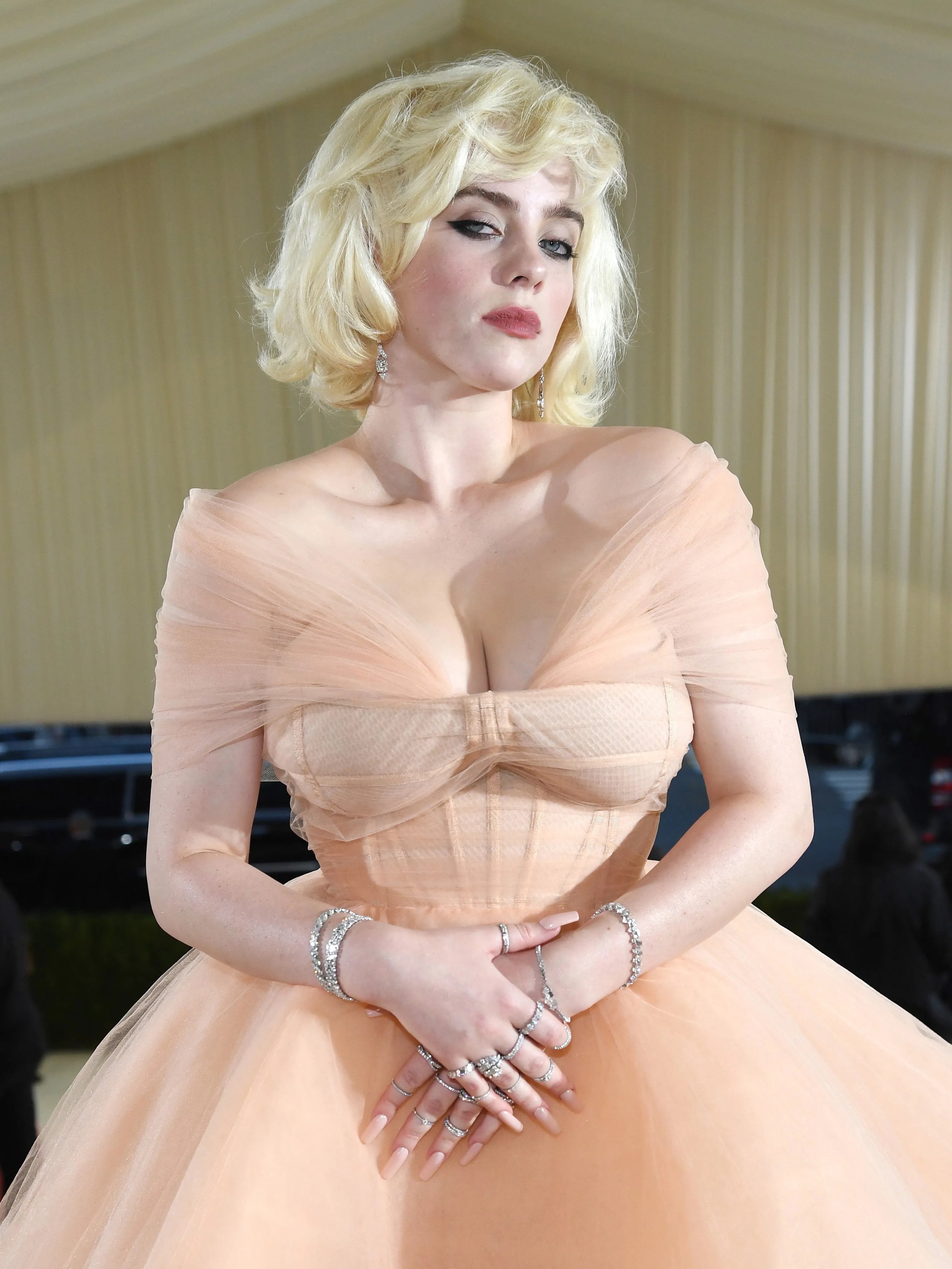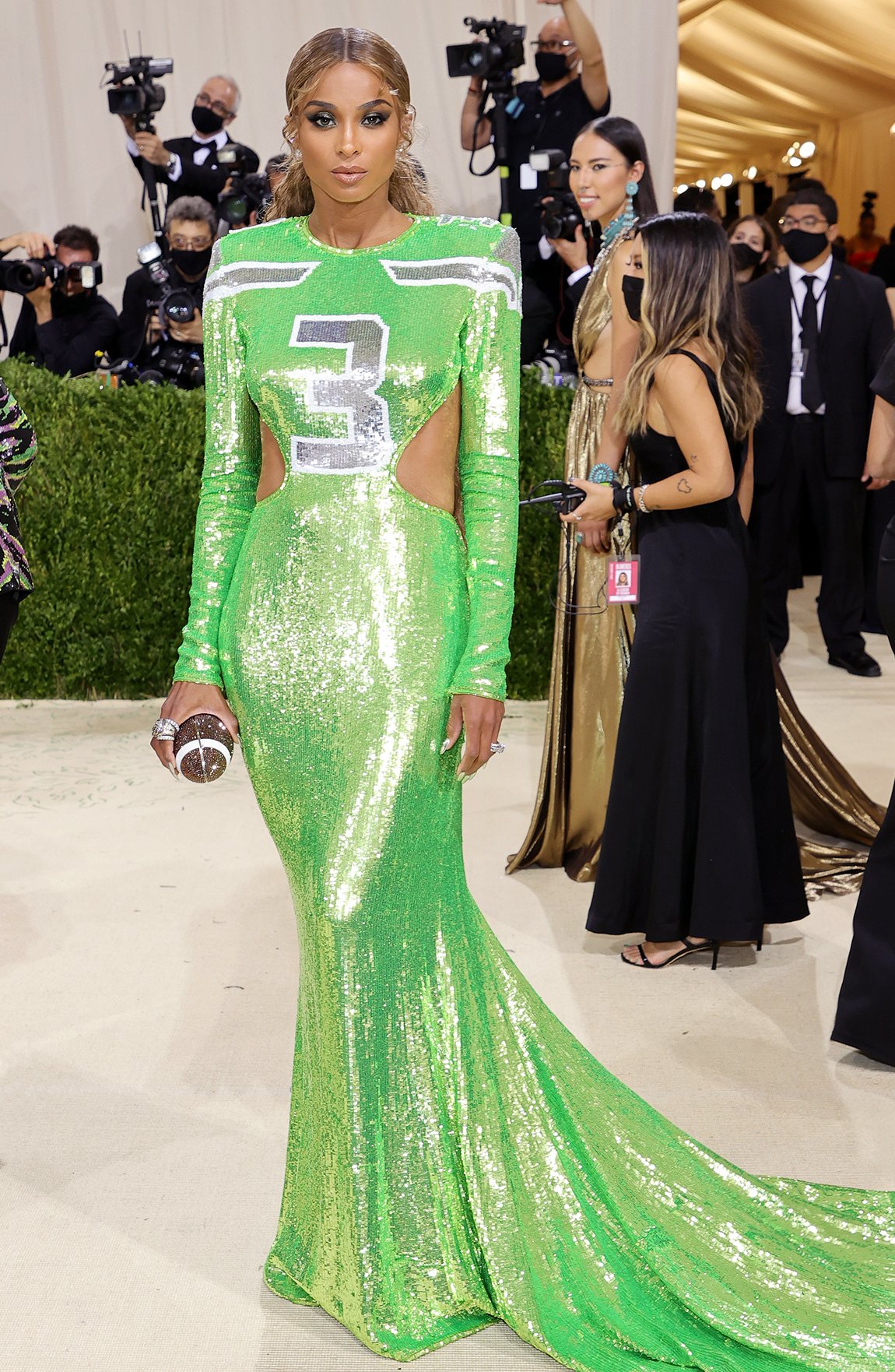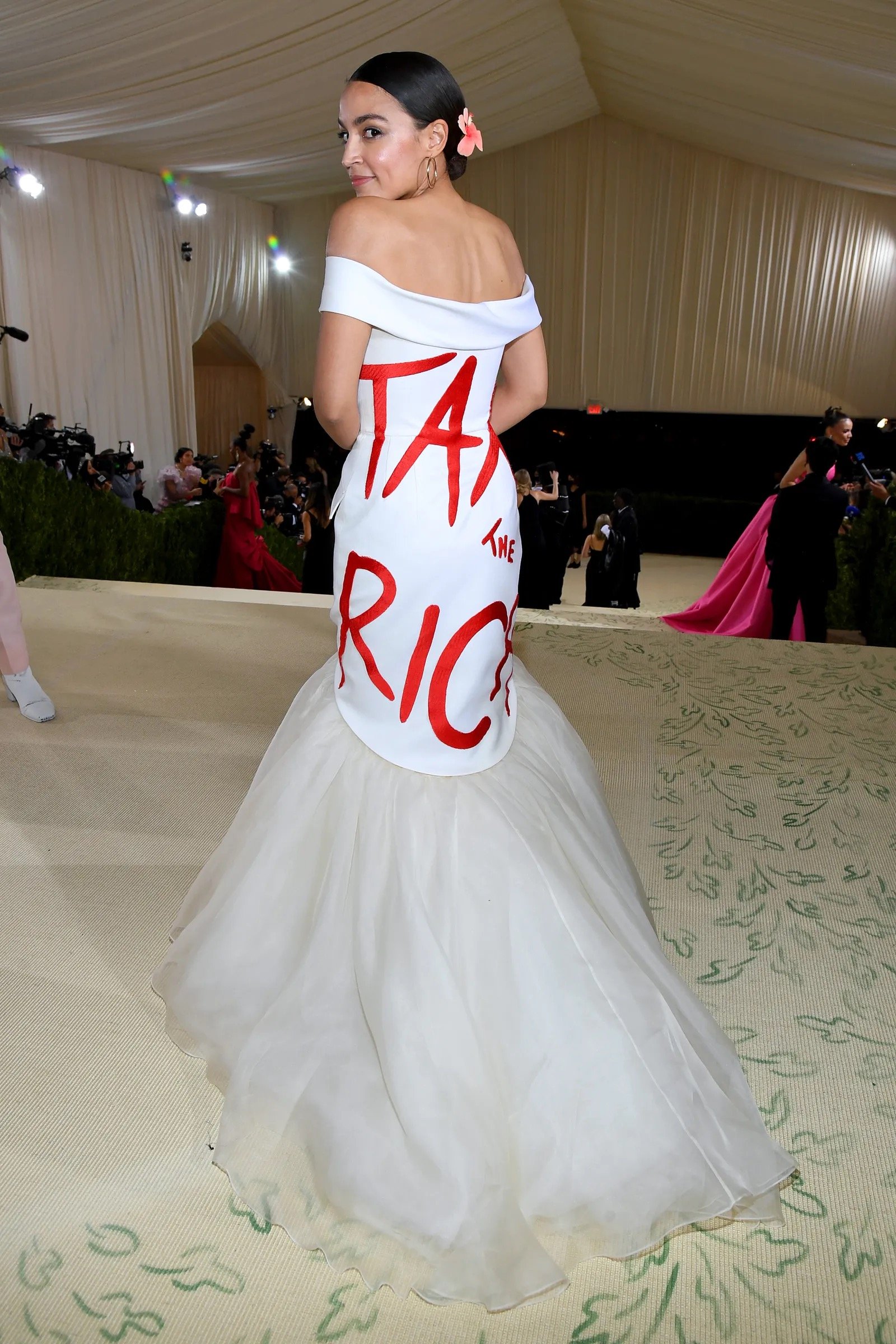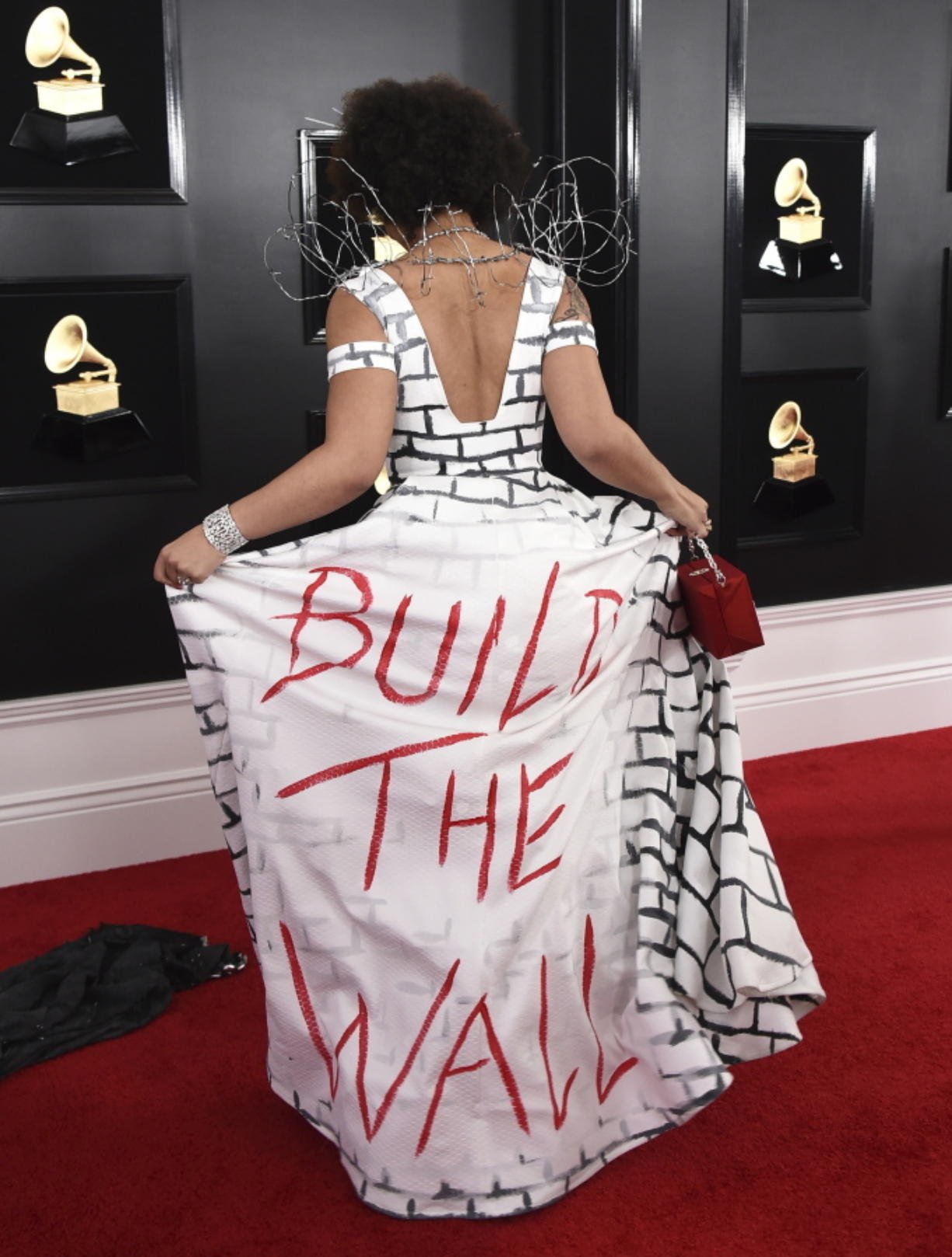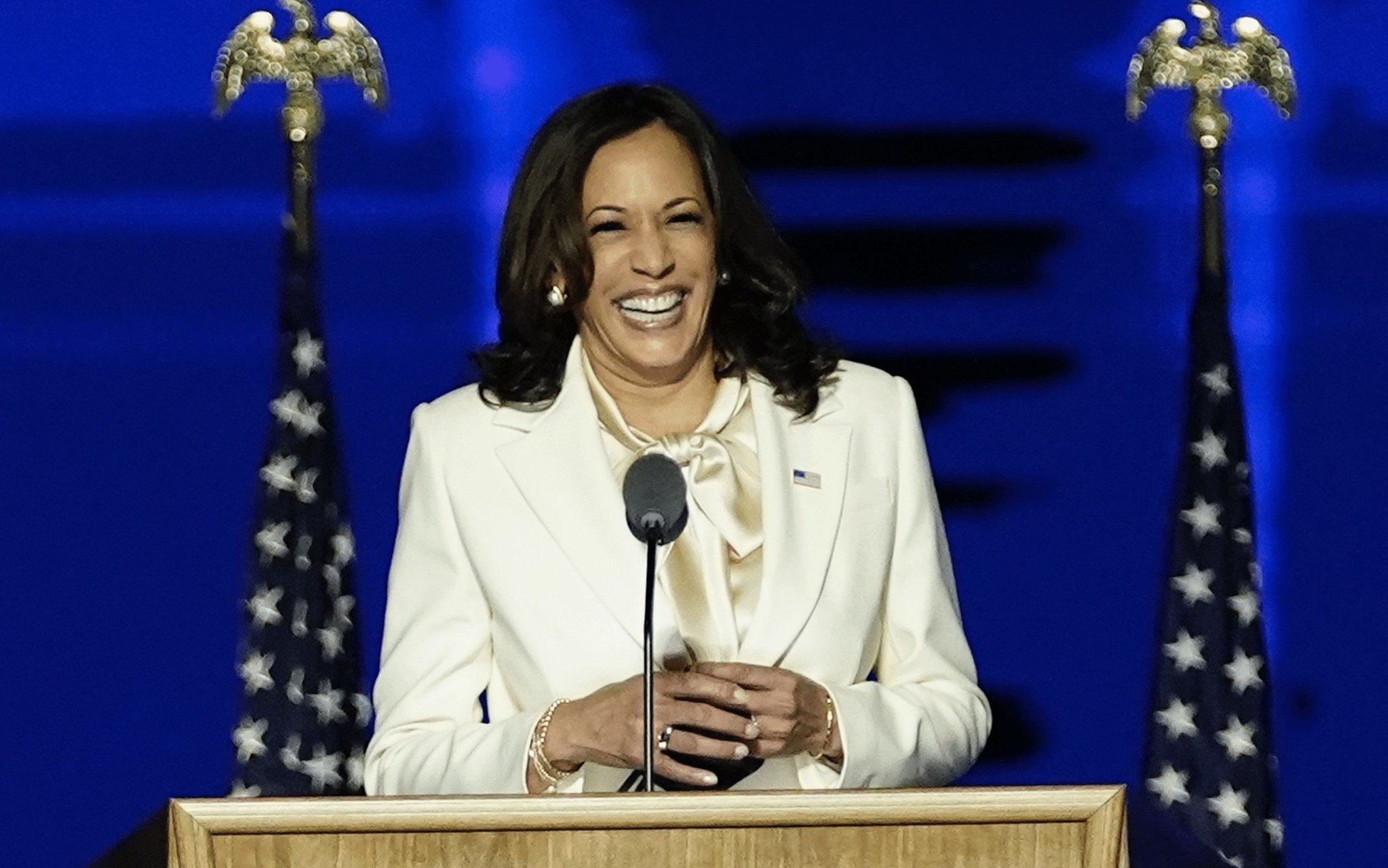The Bigger the Words, the Smaller the Statement
By Jenny Langerman
A fundraiser for the Metropolitan Museum of Art’s Costume Institute in New York City, the Met Gala is one of pop culture’s most anticipated occasions of the year. The Met Gala corrals some of the biggest stars wearing some of the best designers for an evening of glitz, and the perfect opportunity to take risks and make fashion statements. The Met celebrates art, after all.
This year’s theme, “In America: A Lexicon of Fashion,” was timely and purposeful. Lead curator Andrew Bolton “felt it was time to reexamine American identity and fashion, especially as it has changed over the last several years due to both political and social justice movements” (Vogue). Some stars sported subtle odes to American culture, such as a designer football jersey (Ciara) and a glamorous, re-imagined Marilyn Monroe look (Billie Eilish). Others took Bolton’s challenge as an opportunity to make their fashion statement political. New York Representative Alexandria Ocasio-Cortez, in particular, turned heads in a Brother Vellies white gown with the words “Tax the Rich” painted on the back in large, red letters (Vogue).
Perhaps surprisingly, praise for the representative was minimal; she was quickly met with criticism from fashionistas and politicians alike. Some condemned Ocasio-Cortez for being hypocritical and distasteful, noting the Met Gala is quite literally an exclusionary cesspool of America’s elite. More than anything though, she was attacked for having “caricatured a progressive cause,” diminishing the important progress she has made in Congress on this issue (New York Times). Ocasio-Cortez without a doubt got people talking -- surely an intended outcome. Yet her words, impossible to ignore, were saturated with an air of performativity, and thus stripped of resonant meaning. In effect, both the artistic and political value were undermined (USA Today).
While Ocasio-Cortez’s sartorial choice made the biggest media buzz, the young politician is not nearly the first to use fashion as a means of making a political statement (in fact, the representative seems to have parodied Joy Villa’s 2019 Grammy dress, which read “Build the Wall” in the same chunky, red letters) (MassLive). In 2020, Vice President Kamala Harris donned an all-white pantsuit and pussy-bow blouse, meant to symbolize peace and femininity, for her vice presidential acceptance speech; it was “a gesture of solidarity with the long line of women who have defied expectations in American politics” (CNN). To provide some examples of the long-running intersection between fashion and politics, British Prime Minister Margaret Thatcher often wore a pussybow blouse just like Harris’s whilst reforming boys’ club rules in the 1980’s, and Jacinda Adern, the Prime Minister of New Zealand, wore a hijab to demonstrate solidarity with Muslim victims of a 2019 terrorist attack (The Washington Post).
It is clear, though, that all these statements do not land equally in the hearts and minds of the public. Harris, Thatcher and Arden were all met with a host of praise for their subtle-yet-meaningful choices, whilst AOC’s dress was denounced as an antic that hijacked the spirit of the Met Gala (USA Today). Why the disparity? There are without a doubt a number of contextual factors that influence the social impact of such statements, as is the case with any form of public statement or protest. Yet, as was true for Ocasio-Cortez, we see pieces with messages written on them, slogan-style, critiqued notably more than those for which the meaning is layered into the design. Slogan-style streetwear, with messages like “treat people with kindness” or “women empower women,” for example, fall prey to the AOC effect: wearing a “woke” phrase does not guarantee any actual wokeness nor does it do anything to actively, institutionally address the problem. Moreover, it disregards the capacity of clothing to speak for itself. While such messages are often helpful in drawing crucial attention to deep-seeded social issues, words are empty without action; the message that is being presented is diluted in the inherently capitalist nature of buying clothing, especially as fashion giants capitalize and commodify “wokeness,” emerging “self-care” trends, and social awareness.
Fashion uniquely lends itself to political expression in that it is built upon championing individuality and celebrating creativity in whatever form that may take. Yet strong reactions to AOC’s dress, and the like, beg us to reconsider the worth of words and reexamine fashion’s purpose and scope -- perhaps using words in this way cheats the idea of fashion as an art form. It’s true that words have plenty of other platforms to call home.
